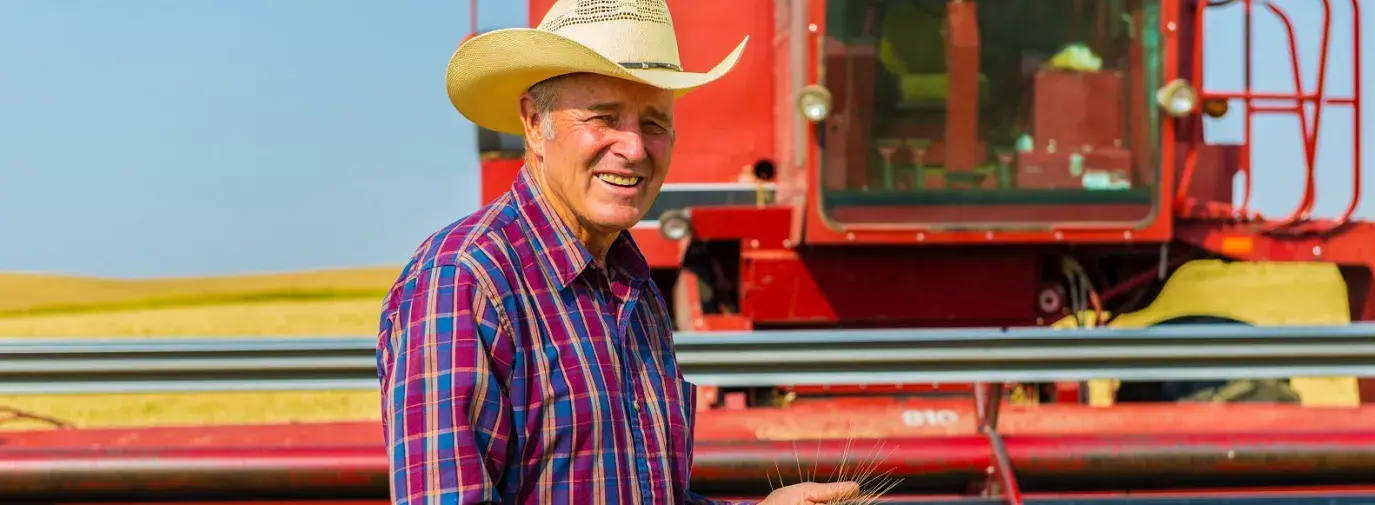
Corporate agriculture is driving the climate crisis and flooding the market with processed foods that are making us sick. Instead, opt for regenerative, organic, and local foods to protect the planet and your health.
A good place to find these foods? Your local farmers market, which is also a great place to meet the people who grew your food and learn about farming. Start a conversation to learn more about how your food is grown and support farmers who grow in a way that matches your values.
What to ask: Did you grow this food? If not, who did?
What to listen for/inquire more about: For many small producers, the person selling food at the market is also involved with growing it. If not, ask about the people who did. Are they provided with the resources and support for a healthy work environment that produces healthy foods? Are they protected from pesticides? Do they work reasonable hours with equitable pay?
What to ask: What farming practices do you use?
What to listen for/inquire more about: Regenerative farming uses practices that protect the soil like: reduced tilling, cover cropping, rotating crops, composting, not using synthetic chemicals, growing perennial and diverse crops, and introducing trees and animals into agricultural systems. Integrated pest management is also something to look for. Your farmer may use organic or biodynamic methods and— even if they’re not certified—a good indicator that they may be on the path to regenerative farming.
What to ask: How do you know your farm soil is healthy?
What to listen for/inquire more about: If your farmer didn’t talk much about soil when describing their farming practices, you may want to consider asking specifically about soil health and regenerative agriculture. Soil must be protected and fed organic matter in order to produce nutritious crops. Listen for environmental indicators. Healthy soil is often dark and rich in humus—the nutrient-dense, organic matter that helps the soil clump together and stay put on fields. Soil erosion and runoff shouldn’t be an issue. Biodiversity should be well represented in the soil, fields, and area around the farm. Plants should grow vigorously without chemical fertilizers. Compost and animal manures are good, as are commitments to protect bees and butterflies.
What to ask: Where do you get your seeds?
What to listen for/inquire more about: Maybe your farmer saves their own seeds. Or, maybe they’re certified organic or biodynamic. Maybe the seeds they use are heirloom varieties or open sourced seeds. Be sure to ask whether a farmer uses genetically modified seeds.
What to ask: If you’re buying meat, eggs, or cheese: How were these animals treated and what is their impact on the land?
What to listen for/inquire more about: Listen for scenarios that mimic the animal’s natural habitat and habits. Do the animals spend time outdoors? If so, how much? Are they isolated or living communally? Are they integrated into parts of the farm or ranch with trees or other crops? The most advanced regenerative ranchers use mobile fences to graze their animals in high densities for short periods of time—modeled after the constantly moving herds of wild herbivores that once grazed the prairies. This brings nutrients to the land and allows diverse grasses to grow.
What to ask: Where is your farm? Can I visit?
What to listen for/inquire more about: Farmers markets are great, because they help you buy food grown close to home. This helps reduce the distance your food has traveled, meaning less impact on the environment and fresher foods for you. If your market is close to home, ask your farmers about farm visits, volunteer opportunities, or tours. Not all small producers can offer these options, but they can be a good indicator of practices, encourage transparency, and get you even closer to the source of your food.
“Any crop which nourishes mankind and/or the soil is the best crop to grow in regenerative organic farming. However, an organic monoculture is not sustainable. We must mimic the diversity we see in nature with extensive rotations on the farm in order for the organic system to be sustainable as well as renewable.”
—Bob Quinn, regenerative organic farmer, author of Grain by Grain, and President and Founder of Kamut International (pictured above)
Being an eco-warrior is as much about education as it is action. Learn about farming online and in-person to understand the importance of sustainable agriculture and where your food comes from!







